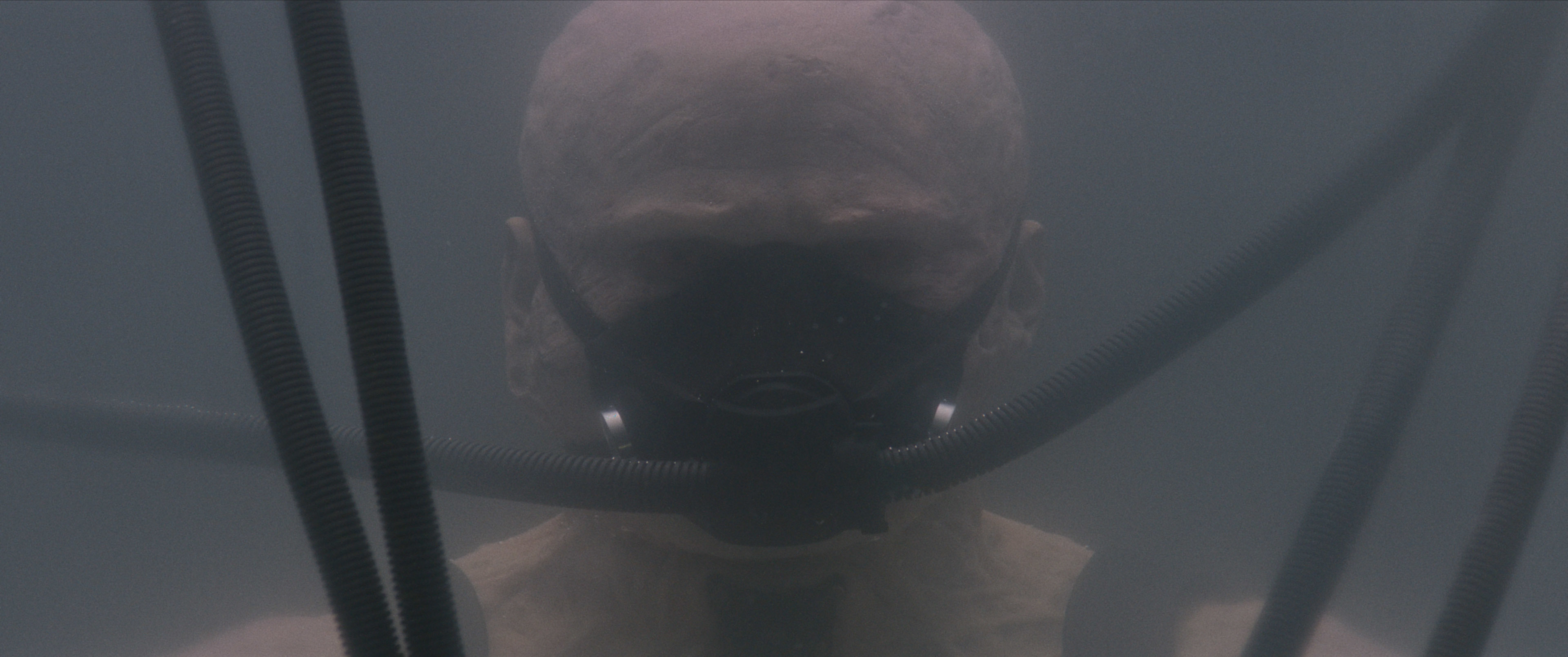‘Next Goal Wins’ Review: Taika Waititi at His Best and at His Worst

The cast of NEXT GOAL WINS. Photo by Hilary Bronwyn Gayle. Courtesy of Searchlight Pictures. © 2023 Searchlight Pictures All Rights Reserved.
The name Taika Waititi has now become synonymous with his work in the Marvel Cinematic Universe, and even then, his disastrous Thor: Love and Thunder has pretty much eclipsed all the heights Thor: Ragnarok achieved back in 2017. But the truth is that Waititi was a prolific filmmaker outside of big Hollywood blockbusters when he made movies for pocket change like 2010’s Boy, his 2014 breakout hit What We Do In The Shadows, and especially, his Oscar-winning Jojo Rabbit. But while Jojo Rabbit‘s heartfelt and sincere story demonstrated a Taika Waititi at the peak of his power, Love and Thunder showed what happens when he becomes too self-indulgent. His latest, Next Goal Wins, with its down-to-basics scale, should have brought him back to his glorious days, but in turn, proves to be the love child of both of those movies.
The film kicks off with one of the biggest “What did I get myself into” moments of the year, with Taika Waititi at his very worst inviting the audience into the story he’s about to tell — and that is meant literally, as the character he plays in one other scene in the film breaks the fourth wall to introduce us to the world in the most off-putting way he could have. Waititi’s unique sense of humor comes up every so often in the first half of the movie, but it’s only in rare times that it works. The opening scene was definitely its lowest point, and it took the film a few minutes to recover from a very low beginning.
But in a perfect mirror of the soccer/football game that takes up the third act of the film, you can’t throw in the towel at the halfway mark, because it’s never too late to flip the score. There’s no easy way to get around this: the first half of Next Goal Wins is Taika Waititi at his very worst, with his awkward humor taking over bits and pieces that resemble a story. However, by the time he and co-writer Iain Morris were able to infuse some energy and heart into it, they finally got the ball rolling. The second half of the film is a vast improvement, even if it’s still a far cry from what he can do as a storyteller. And though the actual plot of the film is not worth the 100 minutes of its runtime, the key here is the themes Waititi eventually stumbles upon.

David Fane and Michael Fassbender in NEXT GOAL WINS. Photo by Hilary Bronwyn Gayle. Courtesy of Searchlight Pictures. © 2023 Searchlight Pictures All Rights Reserved.
Michael Fassbender plays Thomas Rongen, a world-renowned football coach who’s been disgraced after two years suffering from anger management issues and a strike of losses he couldn’t recover from. To try to find himself again, his team highly recommends he accepts an offer to go train the American Samoa team — the nation that infamously was on the receiving end of the biggest defeat in international football history, when they lost 31-0 to Australia in 2001. Ten years have passed and the team, an assembly of the only few people willing to be humiliated from its 50k population, has one objective: to score a goal in a match.
The heart of the story lies in the way Fassbender’s character is able to accept the ways of the people he’s living with now, as opposed to trying to impose his caucasian way of looking at the world as a game in which you either win or fail, rather than one you should enjoy. It’s colonialism in a microcosm and the nuanced ways in which Waititi, who takes in his New Zealander heritage to deliver an inverse version of the white savior tropes, are by far some of its most interesting moments. But it takes a while before he can actually deliver on them, and they come across as slightly heavy-handed — which is too bad because few people other than Waititi could have actually made them work.
The actual triumph of the film, though, is Thomas’ relationship with one of the top players of the team, Jaiyah (wonderfully played by first-timer Kaimana). She is Fa’afafine, their word for someone with fluid genders — while she still technically qualifies as part of the men’s team, she’s been taking hormones for a while. And though her initial moments on screen were in one of the most awkward and cringe scenes in the film, it’s a good thing we’re not judging a book by its cover. In the context of what comes later, that scene works much better than it does at first, and Jaiyah’s story is by far the best part of Next Goal Wins.
The secret sauce here is that her arc is very distinct from the classic depiction of a transgender person, being a lot more nuanced and bringing up themes that aren’t often discussed, yet it still feels unique to her life situation. The film’s description of what being transgender is is also one of the most beautiful things I’ve ever heard, and I’d be doing it a disservice if I tried to reproduce it here.

Kaimana and the cast of NEXT GOAL WINS. Photo by Hilary Bronwyn Gayle. Courtesy of Searchlight Pictures. © 2022 20th Century Studios All Rights Reserved.
In his Pacific Island retirement, an experience that would be considered a gift from heaven by many others, Fassbender’s Thomas Rongen must find himself again after a rough couple of years since she split with her ex-wife Gail, played by Elisabeth Moss. To say that Next Goal Wins underutilizes Moss would be an unfair criticism, since every movie that does not feature her in pretty much every scene is technically underutilizing her. But given some of the revelations made too late in the game that give us an insight into Fassbender’s character, it really feels like we missed out on some great character work with Gail.
Fassbender’s character is not lost in the mix either. He’s our eyes and ears, and though the actor shot this film years ago, it’s definitely an interesting juxtaposition to see his performance here, half-comedic half-explosive, come out around the same time his restrained work in David Fincher’s The Killer. We are given some hints about a much happier past life he had with his daughter and wife, but Waititi holds his cards too close to the chest for a reveal in a key third-act moment. And though it worked for that particular scene, it also short-handed a lot of who his character was in the 80 minutes before that.
The script also attempts to create some characters in the head of the Footfall Federation, Tavita (Oscar Kightley), who is the butt of a terrible boob-related joke at the beginning of the film (another one of those “What did I get myself into” moments that could be enough for many to turn it off immediately) and never really recovers from it. He’s the personification of optimism, the guy who believes, more than anyone else on the island, the team can actually score a goal. But that is not enough to make a compelling character. His is the only family on the island we meet, with his wife having a few scenes but not playing a significant part either, and his son Daru (Beulah Koale), who gets some of the spotlight during the second half of the film but doesn’t really earn it.
In the end, though, Next Goal Wins is a mixed bag of big wins but also heavy losses. After starting off as too self-indulgent, Waititi finally found some heart in doing an anti-white savior story that feels genuine because it’s populated by natives and orchestrated by a native islander. It’s not a case in which it tried to swing for the fences and would have been much better if it stayed simple, but rather a film that could have been stripped from its simple parts about a football match and could have used more emphasis on the colonialism themes and the aspiration to reach equality in all aspects of life. Not only do the Samoans find transgender people a natural part of life, they champion them. Why can’t we all do the same?
Next Goal Wins is currently available on PVOD in North America and select territories, while opening in theaters in other countries.
Miguel Fernández is a Spanish student that has movies as his second passion in life. His favorite movie of all time is The Lord of the Rings, but he is also a huge Star Wars fan. However, fantasy movies are not his only cup of tea, as authors like Scorsese, Fincher, Kubrick or Hitchcock have been an obsession for him since he started to understand the language of filmmaking. He is that guy who will watch a black and white movie, just because it is in black and white.






